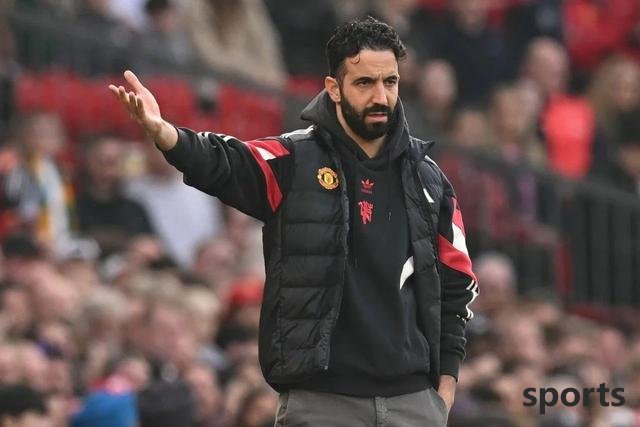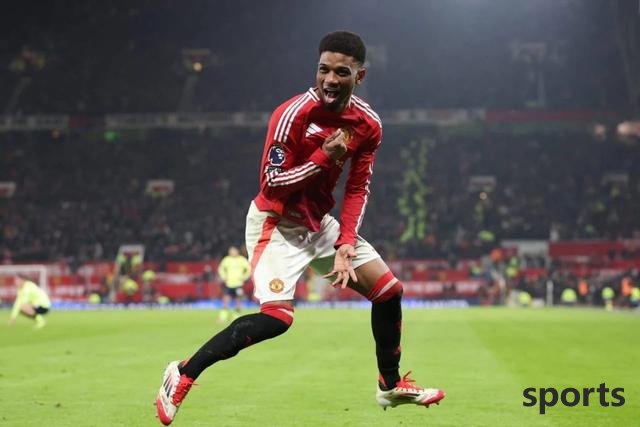Red dusk at Old Trafford: The financial collapse and reconstruction mystery behind Manchester United s 51-year low
Manchester United is standing at the crossroads of fate after its worst season in more than half a century. The final whistle of the 0-1 loss to Tottenham in the Europa League final on Wednesday night not only made Ruben Amorin's team miss the Champions League next season, but also means that Manchester United will completely bid farewell to the European arena for the second time in 35 years. The loss was like a heavy hammer, shattering the glory of Old Trafford and making the club's financial situation, which was already stretched by Sir Jim Ratcliffe's spending cuts.
The direct blow to Manchester United by losing the UEFA Cup final is huge economic losses. If you win the championship and qualify for the Champions League, the team can earn at least 80 million pounds. This money not only comes from the Europa League bonus, but also includes the share of the Champions League broadcast and ticket revenue. Even if you are eliminated in the Champions League group stage, the funds can still be steadily put. If you go further, the returns will increase significantly. Now this "life-saving money" that could have been used for signing has gone to nothing. In addition, the deduction of £10 million in Adidas' contract has taken effect, and Manchester United's fiscal pressure has suddenly intensified.
What's more difficult is the dilemma of signings - Champions League qualification is not only an economic guarantee, but also a golden sign that attracts top players. Matthews Cunia, who were originally close to reaching personal terms, and the negotiations with Liam Drapp may have changed due to Manchester United's missed European war. Although clubs used to attract players with Champions League salary, the continued absence of top events will sooner or later make this strategy unsustainable - after all, Manchester United is not Manchester City and Real Madrid, which can enter the Champions League every year. When the "Champions League treatment" loses the support of the event, the players' willingness to join and the team's bargaining power will decline significantly.

Amorin's coach position was covered in shadow due to this loss. Although he took over mid-season and needed time to understand the lineup and adapt to the Premier League, a bunch of bad records has seriously damaged his credibility. The problems exposed by the team on the court - from defensive cover loopholes to critical moment mistakes - all point to the double failure of tactical running-in and psychological construction. When asked about the season's gains, in addition to the memories of several wins, they were more helpless about the roster flaws and tactical chaos.
The season crash stems from the "perfect storm" of multiple factors: insisting on firing Tenghach but failing to establish a new system in time, the transfer market signings are chaotic and lack of clear planning, the running-in pain between the new coach and the players, and the uneasy atmosphere of the Carrington base due to ownership changes. Especially when the team was only 4 points away from the Champions League in the Premier League, it fell to the bottom due to the turmoil after the change of coaches, this gap further highlighted the disorder in management's decision-making.
Manchester United's lineup quality issues have long been exposed. The team is expected to hit a new low for Premier League goals this season, with the lack of finishing ability on the front line, lack of midfield creativity and full of loopholes in the defensive system. These are the consequences of the accumulation of mistakes in signing and making mistakes over the years. Although Rasmus Hoylund has also shown potential in the team, the psychological trauma caused by frequent loss may hinder their growth. The team's youthful structure is originally hopeful - next season's lineup is only a few players over 30 years old, including Fernandez, Maguire, Casemiro, etc., and most of them are in their year of playing or younger. But the key is whether these young people can realize their talents in the high-pressure environment of Old Trafford, or will they repeat the mistakes of their predecessors' "potential fall"? After all, the brief rise of Leicester City and Nottingham Forest has proved that a short-term rebound is easy but a long-term stability is difficult.
Amorin's insistence on the three-back system has caused controversy. The mainstream European football teams rarely adopted this formation in the past decade. Manchester United has implemented such radical changes when their financial difficulties and the team is at its lowest point in 51 years. The risks are self-evident. If the system itself has flaws, the road to going back will be long and difficult. More importantly, has Ratcliff’s in-depth intervention excessively interfered with professional football decisions? Does his complex relationship with the Glazer family lay hidden dangers for the reconstruction of the club?
The debate about the stay and departure of core players is rampant: Fernandez's remarks after the finals leave the possibility of leaving the team, and Riyadh's huge offer is extremely tempting; Garnacho was dissatisfied with insufficient playing time and suggested leaving the team. However, in the context of Manchester United's repeated mistakes in signings, these players are actually an indispensable pillar in the current lineup - unless an irrefutable offer is received, "cashing out" may aggravate the turmoil of the lineup.

Manchester United must give priority to strengthening three major positions this summer: in the center position, Hoylund has not proved himself yet, and finding a stable goal point is the top priority; in the midfield, Eriksen leaves the team and Casemiro is aging, and no. 6 players with both hardness and organizational capabilities are needed; in the right wingback position, Dalot is alone and he needs to replenish rotation or starting candidates. Focusing on the ideas of team building by Lennie Yoro, Fernandez, Amad and other players, we aim to match the backbone of experience with young core. But the premise of all plans is that the club can complete high-quality signings under financial restrictions, while ensuring that Amorin has enough time and support to promote system reform.
In the dusk of Old Trafford, the red curtain was slowly falling. The defeat in the UEFA Cup final is not only the end of a season, but also may become a touchstone on Manchester United's road to reconstruction. Is it Nirvana in the pain or sinking into chaos? The answer may be hidden in every signing, every tactical adjustment this summer, and whether the players can draw from failures. After all, the charm of football has never been limited to victory, but also the courage to stand up again after falling - and what Manchester United needs most now is this courage.
- Recent Posts
-
- Template Raulmaca: Gonzalo 2 g
- U23 Asian Cup draw: China, Ira
- Reporter: Inter Milan is waiti
- Arteta says that he believes t
- Zidane won three consecutive c
- Today s interesting picture: w
- Three good things come! Chelse
- Guardiola: I saw Haaland go to
- Juventus set up Hall of Fame a
- Tottenham s record transfer fe
- Hot Posts
-
- Club World Cup Winning Predict
- Another upset! Swedish star Mo
- [Today s Event] 3-string 1: Ma
- Upset! Real Madrid draws again
- The empty goal failed! The Chi
- Real Madrid has made great cha
- Barcelona Lamacia scored a goa
- Unwilling to give up! De Bruyn
- Manchester United has a new mi
- Master level! The 17-year-old
- 92 minutes of the game! The pl
- The Club World Cup was also di
- Alonso s intervention and inte
- 40-year-old Cazorla: Before re
- Chelsea faces the trouble of c
- Foden took Burberry s hard pho
- Italian media: Arnau & Cor
- The number of successful playe
- Both relegated! Bochum & K
- Donnarumma suggests that Paris
- search
-
- Links
-
